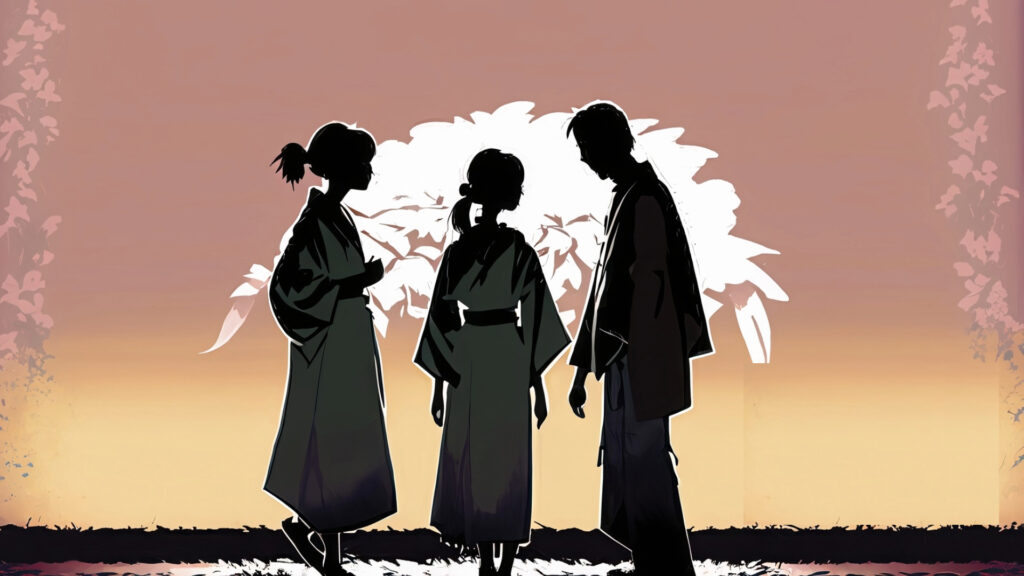娘がつくった布は、すぐに話題になりました。
おじいさんとおばあさんの生活も豊かになりました。
おじいさんとおばあさんは娘を、我が子として迎え入れました。
冬が過ぎ、幸せな日々がしばらく続きました。

しかし娘は日が経つにつれて、だんだん痩せて元気がなくなっていきました。
おじいさんとおばあさんは心配になりました。
「一体どうしたんだい? 無理して、はたらかなくてもいいんだよ。」
娘は笑って答えました。
「心配しなくても大丈夫です。布はおりつづけます」
娘はそう言って、布をおるのを決してやめようとはしませんでした。
The cloth that the lady made quickly became a topic of conversation.
The lives of the grandfather and grandmother also became richer.
The grandfather and grandmother welcomed the lady as their own child.
Winter passed, and happy days continued for a while.
However, as the days went by, the lady gradually became thinner and lost her energy.
The old man and old woman became worried.
“We wonder what’s happened? You don’t have to work so hard.”
The lady answered with a smile.
“Don’t worry. I’ll keep weaving the cloth.”
Saying that, the lady never stopped weaving the cloth.
| 話題(わだい) | topic, subject |
| 生活(せいかつ) | life, lifestyle |
| 豊か(ゆたか) | rich, abundant |
| 我が子(わがこ) | our child, one’s own child |
| 迎え入れる(むかえいれる) | to welcome, to adopt |
| 幸せ(しあわせ) | happiness |
| 日々(ひび) | days, everyday |
| 日が経つ(ひがたつ) | days pass, time goes by |
| だんだんと | gradually, slowly |
| 痩せる(やせる) | to become thin, to lose weight |
| 心配(しんぱい) | worry, concern |
| 笑う(わらう) | to laugh |
| 答える(こたえる) | to respond, to answer |
| 無理して(むりして)~ | forcefully, struggle to |
| 決して(けっして)〜ない | never~ |
| 払う(はらう) | to pay |
| 急ぐ(いそぐ) | to hurry up |
| 大丈夫(だいじょうぶ) | It’s ok |
The expression “〜なくてもいい” in Japanese conveys that a specific action or state is not necessarily required. It is formed by adding “くてもいい” to the verb’s ない form (the “ない form” without the “な”).
This expression is used when a particular action is not needed or when under certain conditions, choosing not to take that action is acceptable. It often carries a light and friendly tone and is frequently used in everyday conversations.
In addition to “いいです (it’s fine),” you can also use “大丈夫 (it’s okay)”.

無理して勉強しなくてもいいよ。
You don’t have to study forcefully.

お金を払わなくてもいいです。
You don’t need to pay money.

急がなくても大丈夫。
You don’t need to hurry.

